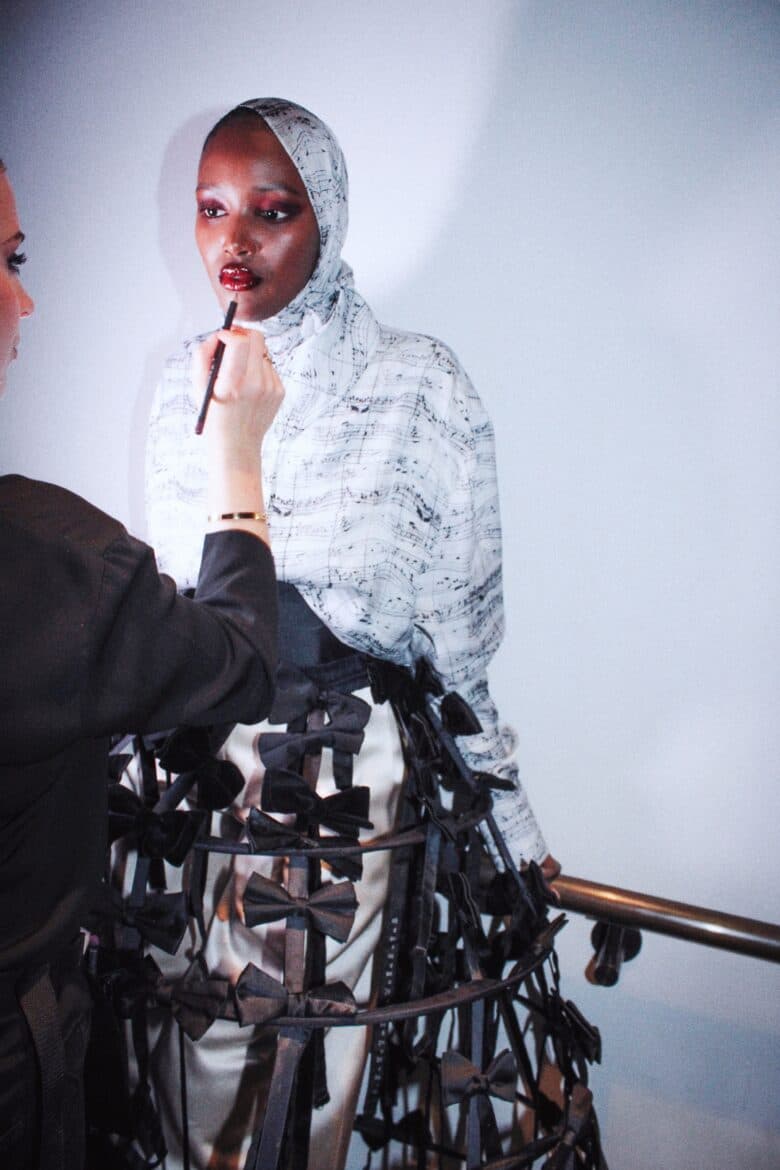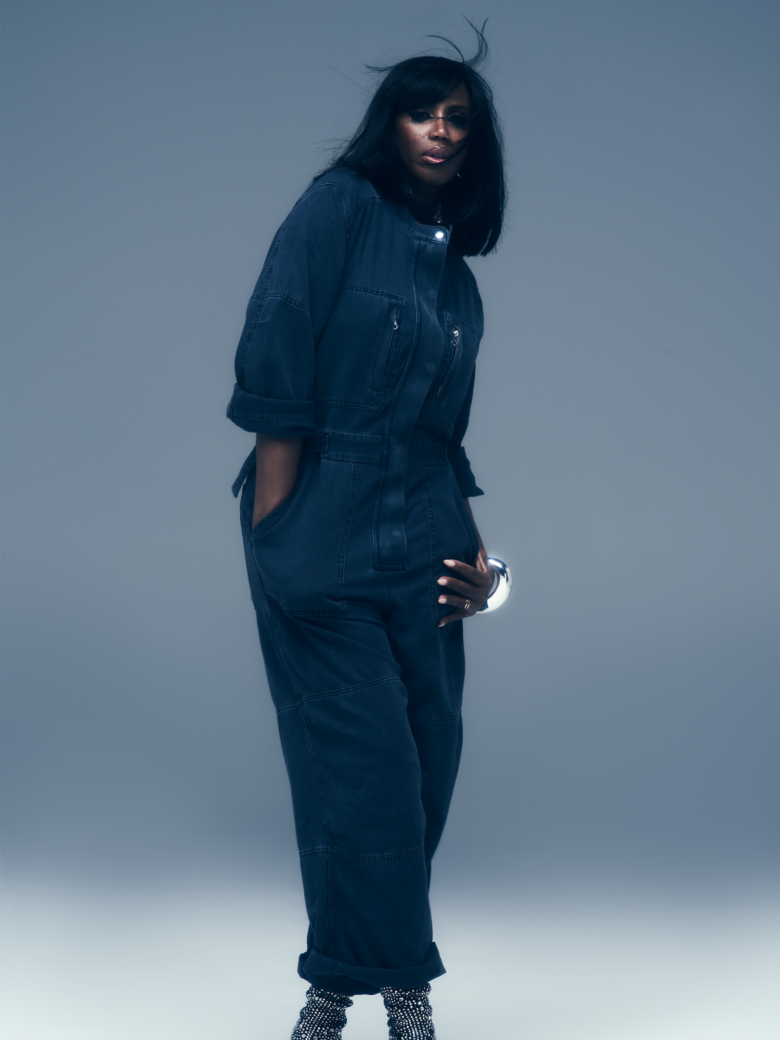Kai-Isaiah Jamal is using poetry to expand the narrative
“Social practice” is a term so overused in arts criticism that its meaning is no longer clear. However, tracing the output of poet and artist Kai-Isaiah Jamal brings the definition into focus. In his writing, art and performance he interweaves his own experience with broader social commentary to produce politically engaged work. Additionally, as an artist with a broad practice, he brings a flexibility to his work – stretching syntax to move beyond the limitations of the written page and bringing a thoughtful consideration to performance works that echoes written verse. As part of Lesbiennale, a festival curated by BBZ’s Naeem Davis and Pxssy Palace’s Nadine Ahmad, Kai-Isaiah was one of many creatives expanding the narrative around different queer identities – visualising ways for terms to be more diverse and intersectional through poetry, art, film and music.
We sat down with Kai-Isaiah to discuss the responsibilities that come with being a role model, the spaces for intersectional identification opened up by Lesbiennale and what he has planned next.
Through your work — poetry, art, journalism and more — you’ve helped create greater visibility for trans men and trans masculine people, particularly those who are also people of colour. Why is this so important?
For so many of us who exist outside the cis-het norm, we are very rarely given the opportunity to see versions or representation of ourselves in our entirety, covering all intersections. For me a huge part of the confusion that surrounded my identity was due to the lack of seeing versions of myself or those similar. The only trans men I was presented with at first were white, normative trans guys who were passable and could navigate the world around them with some privileges I wasn’t afforded. This created a distance; an unattainability for me to feel like I could connect with my transness. There were times in which I felt I had to opt out of a segment of my identity in order to be the other; for example my blackness, or my queerness.
My visibility and voice are things I want to be poignant and heard to give a representation or a figure to those who are still to come; to give them the things I desperately needed. It’s also key for me to use my privilege as a trans man to speak about the violence towards trans women and aim to show ways to be an active ally to those who are forced to the bottom of the food chain.
Given the ways you are improving the representation of trans men, you serve as a role model to other people in the LGBTQIA+ community. How does this feel? Is that a lot of pressure?
It’s weird, people often think I and many other visible masc-centred or trans guys in the community have a full understanding and grasp on everything. This really isn’t the case (for me at least). Growth is something that continues and transitioning is a journey; one without an end goal or definitive moment for many. It’s a constant, evolving state of being. There are still things I struggle with, or have yet to unlearn. There are still times when I don’t pass or I can’t do things due to dysphoria.
I don’t think anyone can be a spokesperson for a whole community, which is why it is so vital to have varying voices even within the community, so we can all create support for all the intersections that us as multifaceted individuals need representation for.
It’s great that trans visibility is finally something that is becoming more accessible, however we need to see more than the passing, normative, white visions of trans masculinity we often see. I want transboi dykes, fat trans bodies, gender-bending masc-centred people who beat a mean face. I want kinky pup trans men, and trans fathers and all of the magic that sits in between everything else.
Your poetry explores personal issues with a brave vulnerability. Is the poetic space a therapy-like space for you?
Poetry has always been my free therapy; it’s a running joke I often say. Language is confusing and complicated and in today’s climate is something that is constantly expanding and creating spaces for more narratives and identities, which is so important. But for me, language often created a barrier between being who I was and being able to articulate who I was. So poetry gave me a way to talk and explore what words fit and which felt uncomfortable, as well as the words that I had to create or redefine for myself. Metaphors became blankets that I could find comfort in, or armour that meant I could try to find non-explicit or yet-to-be-understood ways of explaining my gender identity. It also is a cathartic experience, it’s a space that allows me to decompress, reflect and process.
Why is it so important to deal with the personal within poetry?
For me, there were so many instances when I was introduced to poetry within the education system when I could not relate to the work. It felt like a world that was inaccessible to those like myself. Slam poetry was really the only space in which I started hearing stories, works and lives that felt relevant to me; something of a home. I realised that there was an openness, a vulnerability and an unapologetic story-telling element in the slam sphere. Like poetry, life has a way to turn into anything; there is no binary of being correct or incorrect. Writing poetry reminds me of this, it gives me a space to talk about my experiences without the need to compare them or force them to fit into a box they can’t.
It also has the power to be the most resonating and moving texts. I just want people to be able to read my work and hear my voice and realise that I am the living, present person and not just an idea or a phase or any of the transphobic rhetoric that we are being fed via the media currently. That there are elements of my work that hopefully can reach everyone, creating a level of resisting the narrative they chose for me and in fact creating my own.
Your poem “Chairs” looks at the tenderness that can exist within masculinity, as well as how to treat young men so that they feel safe enough to be vulnerable. For those who haven’t read the poem, how do you think we can encourage young men to explore their tenderness?
It takes an awfully long time to get to know yourself fully, and maybe you never can because you are so many people in one lifetime, So keep that in mind at all times. Try to take time for yourself, find a way to have a moment in which you can reflect or process emotions and environments. Find moments of intimacy, with yourself firstly, but also others around you. We have to find ways to break through the barriers and constructs that bind us to the idea that intimacy is solely allowed within a romantic setting. Tell your mandem you love them, try to open conversations about mental well-being, cry a likkle if it comes.
There comes a point in most children’s lives in which we lose the soft naivety of a youth. There are ways to keep that softness, I’m sure everyone can find a place to retrieve it.
The Lesbiennale Festival helped to open up space within the ways that “lesbian” is defined, away from those who reduce it to a term just for cis gay women. Why is it so important to make terms and labels work for us rather than against us?
I can only echo how confusing, complicated and at times suffocating language can be. For me there are so many ways of self identifying, that labels may be something that we are slowly losing, bending or stretching to feel inclusive for those whose gender identification may give reason to the exclusion of their sexual identification. Personally, lesbian was never a word that felt easy to wear however stud, boi, zaddy and dyke were all ways of accessing masculinity without the feeling of having my previous life, identities and articulation of my identity removed or erased. Lesbiennale served as a way to create a new space in which we didn’t have to pull apart language and make it fit. There was no justification or explanation for who we were and how we wanted to be referred to.
We are living in a time in which we often hear that the LGBT+ acronym is getting ‘out of hand’ or that ‘there are too many identities’ or when people such as Piers Morgan offend our non-binary siblings by mocking that he can identify as ‘a penguin’. This causal transphobia only echos the violence that we are constantly facing. In those moments I pose the question, ‘how can someone finding themselves bring you anything but joy?’
What projects do you have coming up that you are excited about?
I am currently writing my first published anthology which is really exciting and hugely daunting at the same time, however the idea of having my work accessible and tangible for those who really need it or resonate with it is something I never thought would happen. Brand work and consultation is something that is taking centre stage currently. A lot of my next year will be in parallel to my healing and post-surgery time out. But there’s constantly more to write, so you can catch glimpses over on Instagram at @kai_isaiah_jamal.
Lesbiennale ran from 8 October until 8 November, for more information click here.

